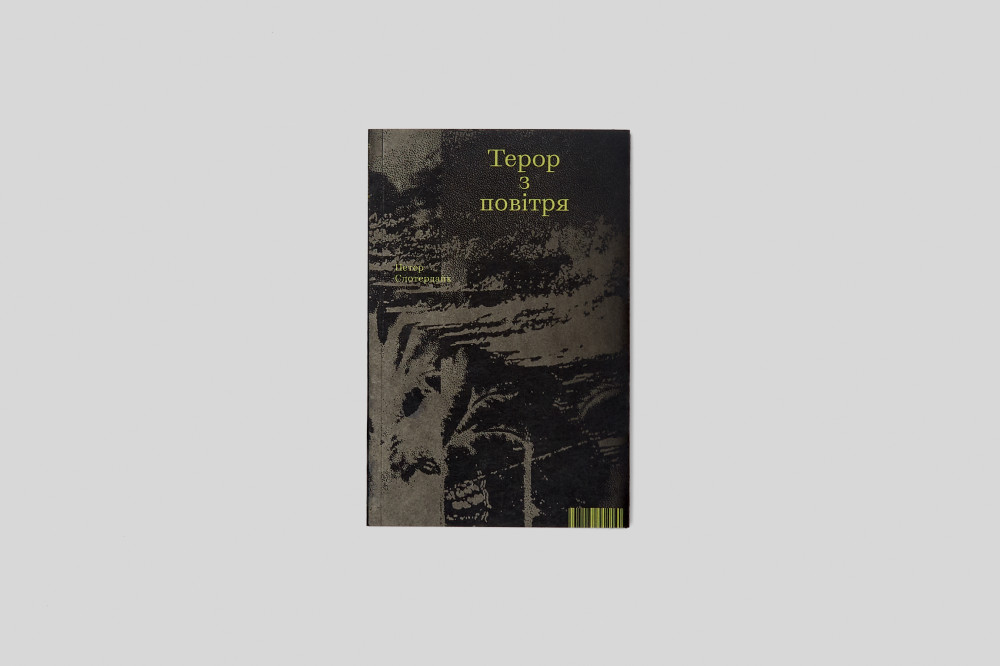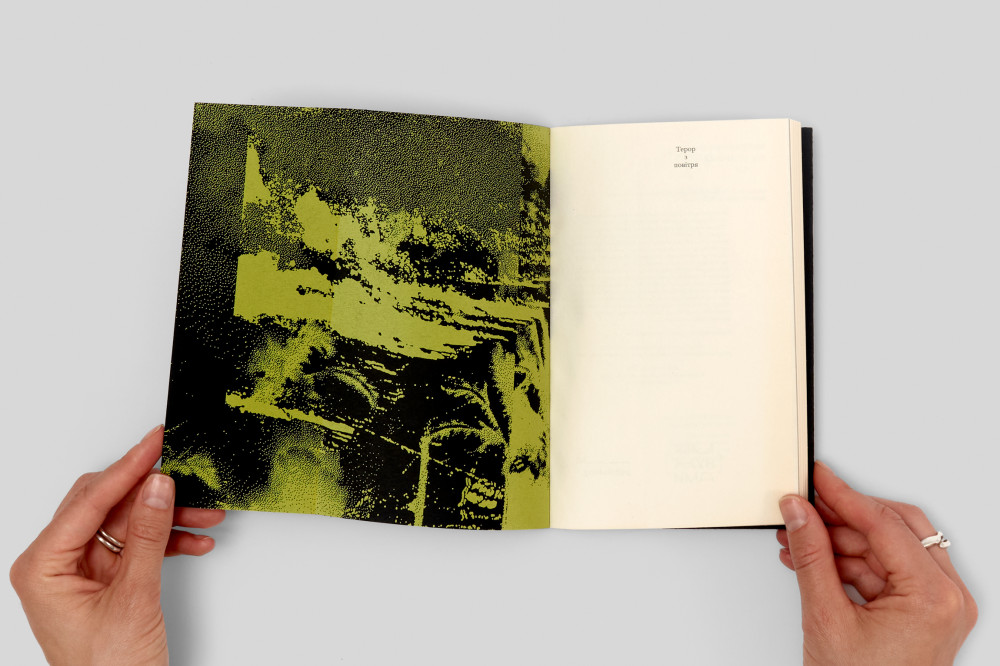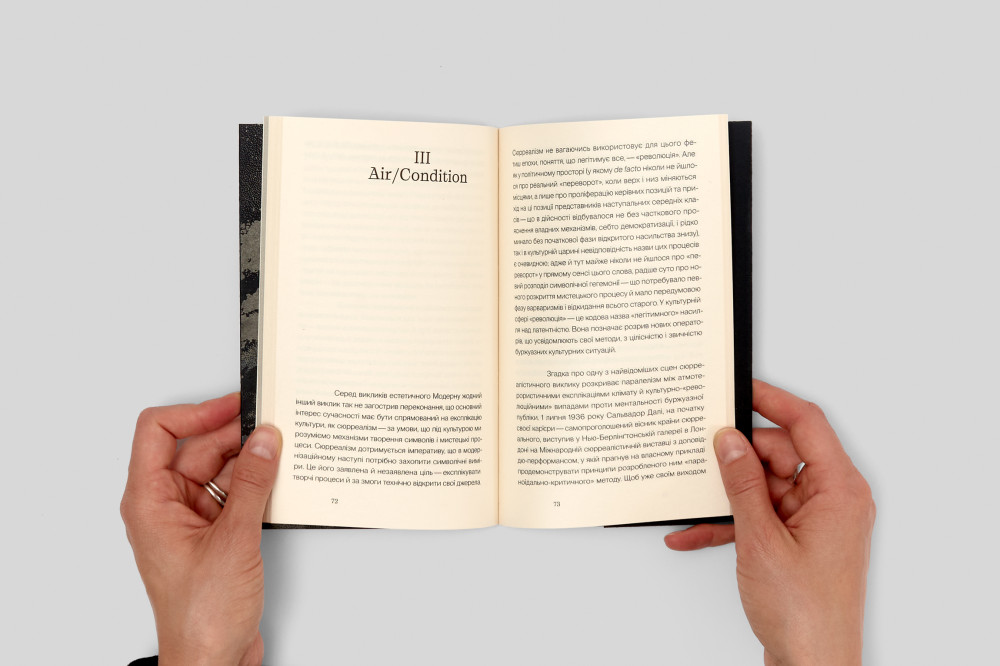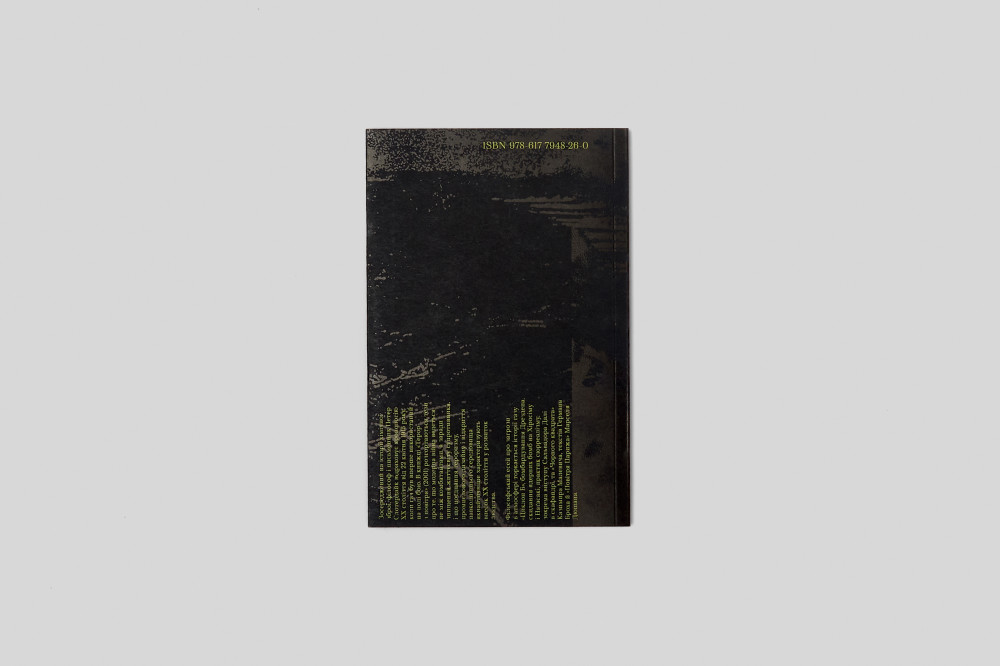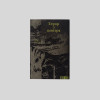
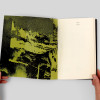
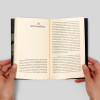
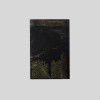
Details
112 pages, 1000 copies, first ed., Ukrainian language, Paperback, 2023, ISBN 978-617-7948-26-0
PETER SLOTERDIJK. TERROR FROM THE AIR
Focusing on the history of chemical weapons, Peter Sloterdijk counts down the chronology of the twentieth century from April 22, 1915, when gas was first used on the battlefield.
The essay "Terror from the Air" (2001) develops the thesis that modern warfare is not fought between combatants, but for the destruction of the enemy's environment, and that the combination of terrorism, product design, and environmental thinking best characterizes the twentieth century's contribution to human development.
The philosophical essay on the threat originating from the atmosphere touches upon the history of Zyklon B gas, the bombing of Dresden, the dropping of nuclear bombs on Hiroshima and Nagasaki, the practices of Surrealism, including Salvador Dalí's report in a spacesuit, and touches upon Kazimir Malevich's "Black Square" and Marcel Duchamp's "Paris Air".
Peter Sloterdijk's book continues a new series of ist_publishing that presents interdisciplinary research on war and culture — warning books.
"Terror from the Air" is shortlisted for the Text Book nomination in the Best Book Design 2023 competition
Team
Publishing house: ist_publishing
Author: Peter Sloterdijk
Author of the foreword to the Ukrainian-language edition, compiler of the warning books series: Borys Filonenko
Translation from the German: Oleksandra Hryhorenko
Design and layout: Volodymyr Havrysh
Printing: Kolo
“warning books series” is a series of books about war and culture. These are studies and collections of lectures and articles translated into Ukrainian and written at the intersection of various fields of humanities — from literary criticism, history and philosophy to art theory, media theory and anthropology. At ist_publishing, we launched this series in 2022, in response to the full-scale invasion of Ukraine by the Russian army, when the need for military defense of the country raised urgent questions about culture. To better understand its relationship to war meant having opportunities to act in a balanced way, to build new relationships, to have discussions about what has been said and written, and from within our own experiences. Culture can prevent war or help to survive it, culture can wage war, and war can subjugate culture. In the “warning books series”, we publish texts that allow us to look at the shared history and theory of war and culture in their shimmering kinship.
